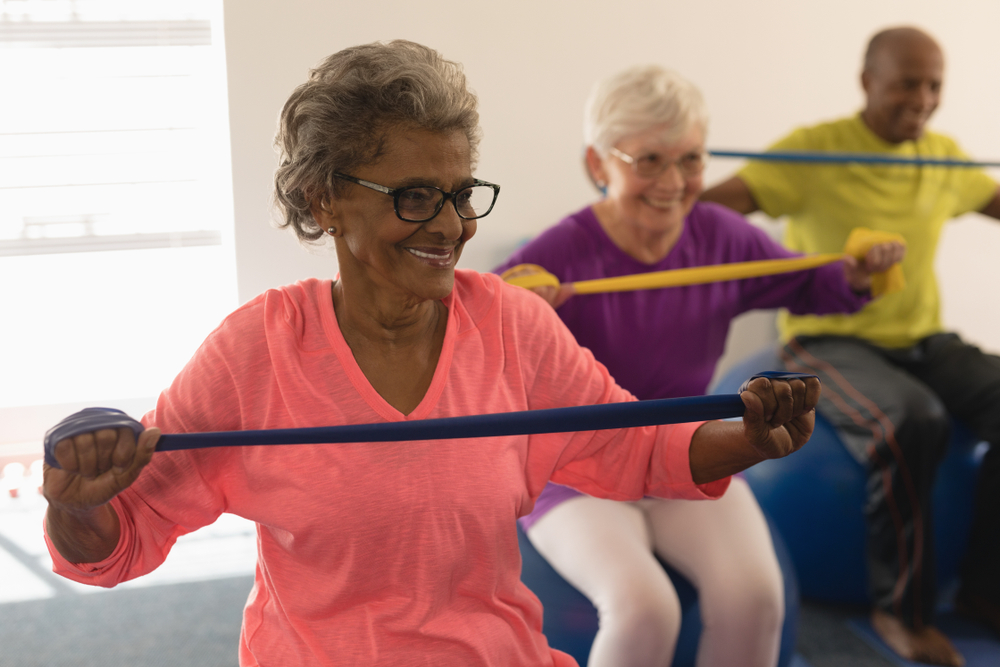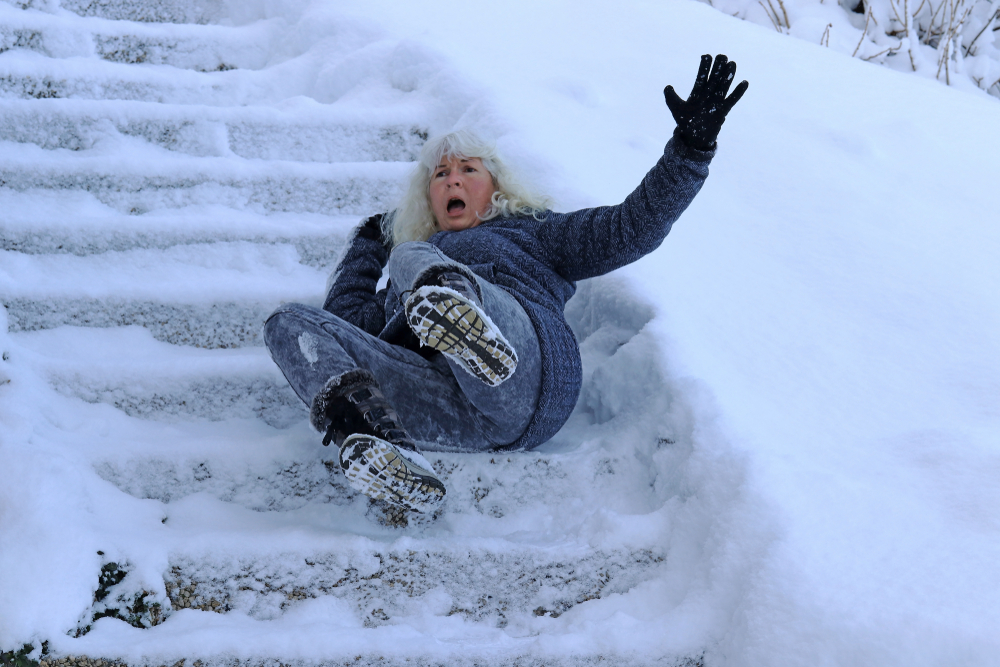WELLINGTON COUNTY – A seemingly simple task like taking the garbage to the curb can become life-changing in the slippery months of winter for seniors.
A fall catching you off guard can mean hours spent lying in pain, waiting to be found in sub-zero temperatures.
Falls are the number one cause of injuries in those over the age of 65, resulting in 13 deaths and 259 hospitalizations every day, according to the Public Health Agency of Canada (PHAC).
Upwards of 30 per cent of seniors fall at least once per year, with at least half of all falls occurring at home and a significant portion occurring while walking on snow or ice.
Falls are also responsible for 95% of all hip fractures and an analysis of hospital stays found the average time seniors spent in hospital, post-fall, was around three weeks, with the duration of a stay increasing with age.
Following hospitalization for a fall, over one-third of seniors are admitted to a long-term care facility.
The best way to prevent falls in winter, and anytime of the year, is to maintain physical activity, says Kelly Gee, VON Smart Exercise and Falls Prevention Program supervisor for Wellington County.
“Exercising is the best way to prevent falls and/or the residual effects of a fall,” Gee said.

Exercising can go a long way to preventing long-lasting impacts from a fall, says Kelly Gee, VON Smart Exercise and Falls Prevention Program supervisor for Wellington County. (Shutterstock)
Regardless of how educated someone is about fall prevention, or how good their balance or strength is, Gee said anyone can be caught off guard and experience a debilitating fall.
The difference for those who keep active is in lowering the “risk of fractures and other injuries,” she said. “When a senior, who is in good physical condition, falls, the impact of that fall is often reduced and they are able to remain independent.”
Factors that exacerbate the likelihood of a fall are: poor balance, decreased muscle and bone strength, reduced vision or hearing, medication side effects and unsafe home conditions.
“As we age we need to take extra precaution to reduce the likelihood and impact of a fall,” Gee said.
Understanding individual risk factors — the College of Occupational Therapists has identified over 400 — and mitigating those risks can be helpful in preventing falls.
Some risk factors to watch for include: low blood pressure, hearing and vision loss, peripheral neuropathy from conditions such as diabetes, improper footwear, lack of sleep, poor mental health, taking over four medications, incorrect use of mobility aids and assistive devices, clutter and tripping hazards at and around home, and poor nutrition.
What can you do to prevent winter falls?
- take your time;
- ensure walkways are clear of ice and snow (look to Snow Angels volunteers or a neighbour);
- use handrails and grab bars;
- wear well-fitting and sturdy shoes;
- dress for the weather, even if you’re outside for only a moment;
- turn on the lights; and
- ask for help from a healthcare or community provider.
But what happens if you do end up on the ground?
First, keep calm and take your time.
If you can get up on your own, PHAC recommends:
- lying on your side and bending your top leg and lifting yourself onto your elbows or hands;
- Pulling yourself toward a sturdy object and kneeling while placing both hands on the sturdy object;
- put your strongest leg in front, still holding onto a sturdy object;
- stand up and seek help.
If you can’t get up, the health agency recommends:
- calling out for help;
- using a fall-alert device or phone to call 911;
- make noise with a cane or other object;
- get into the most comfortable position you can and wait for help;
- try to move joints to ease circulation and prevent stiffness.
“Even if it appears no harm was done, there could be after-effects” from a fall, a PHAC guide states.
“Symptoms may appear in the days that follow a fall. If you fall, take note of your condition,” the guide states, adding, “It’s always better to mention falls to your doctor.”
VON offers exercise and fall prevention classes virtually by Zoom Monday to Friday.
To join, contact Kelly Gee at kelly.gee@von.ca or by calling 519-314-0264.
To view the VON SMART Exercise and Falls Prevention YouTube channel, click here.




